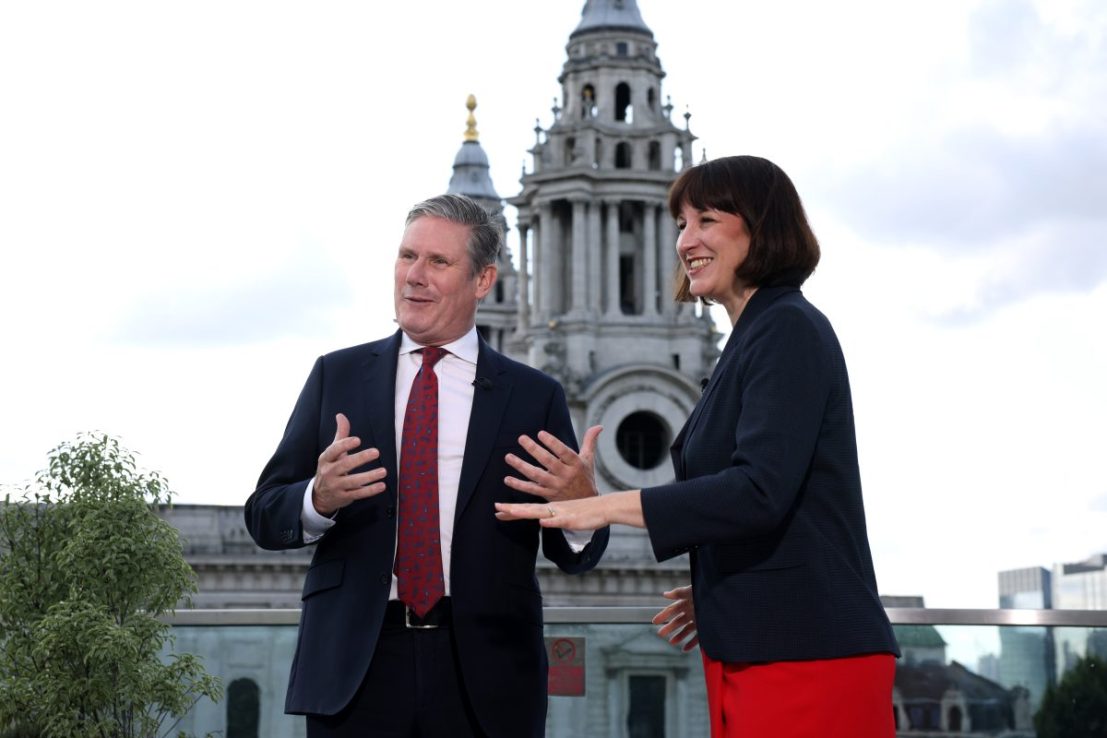Can Rachel Reeves get us excited about investing?
If Rachel Reeves is serious about the need for greater investment, she needs to tell a story about why it’s more important than day-to-day spending, says James Nation When was the last time you heard about Labour’s ‘missions’? What is their overriding governing thought or story? Homing in on a message and then sticking to [...]


If Rachel Reeves is serious about the need for greater investment, she needs to tell a story about why it’s more important than day-to-day spending, says James Nation
When was the last time you heard about Labour’s ‘missions’? What is their overriding governing thought or story? Homing in on a message and then sticking to it is a challenge for any administration. When I was working in Rishi Sunak’s government we’d get asked all the time if the five priorities were still the five priorities and why those were the five.
With the reset in Downing Street, next week’s Investment Summit and looking ahead to the Budget, Labour will feel like there’s not a moment too soon to land their story. Both Rachel Reeves and the Prime Minister have settled on an argument around the need for greater investment in the UK. The pitch-rolling around fiscal rules and borrow-to-invest shows that Labour see capital investment by the state as key to improving the growth prospects of the economy and to fixing the public realm. To attempt to get ahead of any market concerns about a fiscal expansion, the Treasury has been arguing that the composition of additional Government borrowing matters. They point to Office for Budget Responsibility analysis showing that a sustained increase in public investment can increase the level of potential economic output.
Labour also want this to work as a political dividing line. Witness the Prime Minister’s attempts to contrast investment with what he calls “decline” under the Conservatives. This line of attack has the potential to cause the Conservatives some difficulties. Elements of the membership base still tack towards Nimby-ism and so Labour scouts will hope that a candidate says something anti-development on the trail in the coming weeks that can then be weaponized.
But the elevation of greater investment as the story poses challenges for the government.
The first is that, in the immediate term, the Chancellor is likely to want to focus on protecting day-to-day spending. It is therefore likely that the profiles for some key capital projects will be delayed and others axed altogether.
Allocating the money is one thing, spending it is another
The second is justifying that the government will actually be able to spend the additional funding Rachel Reeves commits. This is key to getting credit from the OBR in their economic forecasts. When Rishi Sunak as Chancellor announced plans to ramp up capital spending in 2020, the OBR assumed that 20 per cent of the funding increase would be ‘underspent’ or returned to the Treasury. Since then, state capability has weakened further, largely as a result of the pandemic, so if the OBR are more generous this time round and assume that more money gets out the door, we will need to ask what has changed. Greater capacity support for local authorities, planning reform, and much less stringent requirements from the Treasury on individual programmes are all part of the solution to ensure more capital expenditure is spent, but these have difficult trade-offs.
Successive governments have sometimes got away with reprofiling or cutting capital spending without the public really noticing
Yet perhaps the most difficult challenge takes us back to where we started: the narrative. Ramping up capital spending is enough to get wonks and technocrats excited. But what is the political purpose behind investment? What is the story? In the past, successive governments have sometimes got away with reprofiling or cutting capital spending without the public really noticing so that they can protect spending on more immediate voter concerns.
Now it’s the other way round, Labour will have to work hard to demonstrate – and reap the rewards from – any political upside. That will require constant message discipline – alongside delivery on the ground – if they are to leave nobody in any doubt as to what their narrative is. And that also means turning the corner on a tricky start.
James is Managing Director at Forefront Advisers and the former Deputy Head of the No10 Policy Unit



